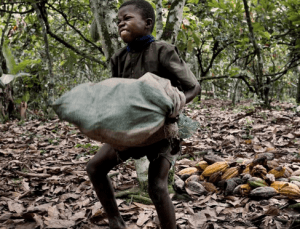Formalising agriculture sector crucial to ending child labour – Stakeholders
 The largely informal nature of the agriculture sector, which is a major contributor to the Gross Domestic Product (GDP) creates a huge bottleneck to tackling child labour and other issues pertaining to decent work, stakeholder groups have observed.
The largely informal nature of the agriculture sector, which is a major contributor to the Gross Domestic Product (GDP) creates a huge bottleneck to tackling child labour and other issues pertaining to decent work, stakeholder groups have observed.
The stakeholders identified absence of formal wage structure in the primary value chain, ineffective policing of farming activities due to logistical constraints and the lack of interest in the sector to ensure compliance with decent work goals as contributors to child labour issues.
The stakeholders represented the National Focal institutions of the International Labour Organisation (ILO), Multinational Enterprises (MNE) Declaration, including the Ghana Employers Association (GEA), Ghana Investment Promotion Centre (GIPC), Labour Department and Workers Union.
At an NME national dialogue on promoting sustainable responsible and inclusive business practices in Ghanaian industries, Ms Priscilla Bioh, a Research Officer at GIPC, observed that most of the Foreign Direct Investments (FDI) were geared towards the agricultural sector as compared to services and manufacturing.
“However, if you check the number of projects that are registered in the agricultural sector compared to the manufacturing and services, you will realise that other sectors have more projects that are extensive and capital intensive than agriculture,” she said.
She observed that most MNE in the agriculture sector were inclined to export trading, agro-processing and “when an MNE is directly involved in the agriculture sector then they are partnering with local farmers or partners”.
“And if you find a local farmer you source raw materials from, you sometimes might be tempted not to check the kind of labourers they use,” she said.
Mr Dawuda Braimah, Acting Chief Labour Officer of the Labour Department, said issues of child labour tended to go beyond the operations of MNEs who sourced their raw materials from farmers who operated informally.
The informal nature of the sector, he said, made policing of farmers to adhere to decent work parameters very challenging due to financial and logistic constraints.
He, however, noted that MNE’s over the years had been partnering key institutions to build capacity of inspectorates to reach out and educate farmers on the relevance of promoting decent work.
According to the ILO, decent work is productive work for men and women in condition of freedom, equity, security and human dignity.
Mr Kinsley Laar, an economist from the GEA said the country must be interested in the challenges and opportunities that NME faced as they formed about 60 per cent of key economic activities.
He said most NME’s dealt with incoherent labour laws in host countries and cultural barriers that inhibited their desire to implement cross-national policies and “there are times their actions are actually misinterpreted and cause some form of conflict”.
The Tripartite Declaration of Principles concerning Multinational Enterprises and Social Policy also known as the MNE Declaration is an ILO political statement that is not subject to ratification or to a formal adherence process by a member state.
The statement, adopted by governments, employers and workers serves as guidelines/orientations based on the ILO foundational texts and relevant Conventions and Recommendations that reflect good work practices for all.
It is also intended to avoid introducing or maintaining inequalities of treatment between multinational and national enterprises while encouraging positive contribution to economic and social progress.
The principle covers five areas – employment, general policies, training, conditions of work and life and industrial relations.
Source: GNA
